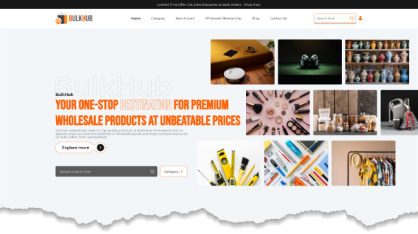
Introduction
Do you want to enhance your social media strategy for business marketing and expansion?
Here we have come up with the best and top 10 social media marketing metrics that will help you measure how well your social media strategy is performing and will guide you to magnify.
Introduction to Social Media Marketing Metrics
Social Media Marketing Metrics are nothing but the particular data points and measurements used to evaluate the performance and effectiveness of social media marketing campaigns. These metrics provide insights into how well your social media efforts are reaching your goals and objectives. They help marketers track and analyze various aspects of their social media strategy, enabling them to make data-driven decisions and optimize their campaigns. You can read our blog Benefits of Social Media Marketing for more information.
Need for Social Media Marketing Metrics
Social Media Marketing Metrics are crucial to understanding the impact of your efforts, optimizing your strategy, and demonstrating the values of your social media marketing to your organization or clients. It helps you to stay competitive, engage with your audience effectively, and adapt to changing trends and customer preferences.
Social Media Marketing Metrics are essential for several reasons, including:
- Measuring Effectiveness: Metrics assist you in evaluating the effectiveness of your social media marketing efforts. You can determine what is working and what is not, allowing you to make data-driven decisions.
- Return on Investment (ROI): Metrics enable you to calculate the return on investments of your social media marketing campaigns. It is crucial for demonstrating the value of your efforts to stakeholders and ensuring that your marketing budget is well-spent.
- Audience Insights: By analyzing metrics, you can obtain valuable insight into your audience’s behavior, preferences, and demographics. This information can be used to create your content and plan a strategy to better engage and target your audience.
- Content Optimization: Metrics can show you which type of content performs best, as well as the timing and frequency that works best for your audience. This data permits you to optimize your content strategy.
- Competitive Analysis: You can use metrics to compare your performance to that of your competitors. It helps you identify opportunities and areas where you may need to improve.
- Recognizing Trends: Metrics can help you to recognize trends in social media usage such as changes in user behavior or the popularity of certain platforms. This information can inform your marketing strategy and keep it up to date.
- Customer Satisfaction: Metrics like engagement rates and sentiment analysis can provide insights into customer satisfaction. This information can help you improve your products or services and build better relationships with your audience.
- Lead Generation: For businesses, social media can be a powerful lead generation tool. Metrics help you track the number of leads generated through social media campaigns and their quality, allowing you to optimize your lead-generation efforts.
- Data-Driven Decision Making: Instead of relying on hunches or gut feeling, metrics permit you to make decisions based on concrete data. This reduces the risk of making costly mistakes in your marketing strategy.
10 Social Media Marketing Metrics
Now let’s take a turn to our main topic of the discussion. Here are some common social media marketing metrics that you need to follow to grow your business in every nook and corner of the universe.
1. User Engagement

The posts that you share on social media must be engaging. You need to keep checking the following attributes once you share your post.
- Reactions: The number of likes or reactions for instance on Facebook, and “hearts” on Instagram received on the post that you have shared.
- Comments: The number of comments your posts receive, indicates interaction and conversations.
- Shares/Retweets: The number of times your content is shared by your audience, extending its reach.
2. Followers

See the count of followers you are getting regularly.
- Followers/Fans: The number of people who follow or like your social media accounts.
- Follower Growth: The rate at which your followers increase over time
- Follower Demographics: Information about the characteristics of your followers, such as age, location, and gender.
3. Reach and Impressions

Analyze the reach of your post to how long your content is getting spread.
- Reach: The number of exclusive users who see your content.
- Impressions: The total number of times your content is displayed, including multiple views by the same user.
4. Click-Through Rate
 Analyze the number of links clicked by the users on your post.
Analyze the number of links clicked by the users on your post.- Click-Through Rate (CTR): The percentage of people who click on a link in your post compared to the number of people who saw it.
- Conversion Rate: The percentage of users who act according to their requirements and wants (e.g., signing up for a newsletter) when they click a link.
5. Website Traffic
 Measure the traffic coming to your website. You can read our blog on Increasing Website Traffic for more details.
Measure the traffic coming to your website. You can read our blog on Increasing Website Traffic for more details.- Referral Traffic: The amount of website traffic driven by your social media profiles
- Bounce Rate: The percentage of visitors who leave your site after viewing only one page, which can indicate the quality of the traffic.
6. Video Metrics

Analyze the video content in the post that you have shared.
- Video Views: The number of times your video content has been viewed.
- Video Watch Time: The total amount of time viewers have spent watching your videos.
7. Brand Awareness

You need to provide your brand information consistently on your post so that most people are aware of it. For this:
- Mention the brand’s details: How often is your brand mentioned on social media?
- Share of Voice: Your brand’s presence compared to competitors in your industry
8. Customer Service

Users must get a response when they ask for a query even on social media. The service provided by you will decide the quality of your services and work too.
- Response Time: The time it takes to respond to customer inquiries or comments.
- Customer Satisfaction: Feedback and sentiment analysis to measure customer happiness.
9. Return On Investment

Analyze the profit that you are getting from social media from:
- Cost-per-click (CPC)-The cost of each click generated from your social media advertising.
- Return on Investment (ROI)- The revenue or profit generated compared to the cost of your social media marketing efforts.
10. Content Performance

The post that you share on social media must be content-rich. You need to analyze how your content is performing on the social media platform. For this, you are required to analyze-
- Top-Performing Content: Recognising which posts or content types are most successful.
- Content Engagement Rate: The ratio of engagement (likes, comments, shares) to the number of people reached.
How to configure Social Media Marketing metrics on the dashboard?
You can get an in-built social media metrics tracker on every social network through which you can explore a raw data that you required to calculate and know your business success on social media platforms.
Apart from this, you can make use of native analytics tools individually such as:
- LinkedIn Analytics
- Pinterest Analytics
- Twitter Analytics
- TikTok Analytics
- Meta Business Suite for broadly used social media Facebook and Instagram platforms
Conclusion
Wrapping up the article, we just want to convey that the metrics that we have chosen here can track every minute detail regarding your social media performance. It’s a great strategy to gain a better understanding of your social success and where you need to focus on or improve.
All these metrics may change depending on your specific goals and the platforms you use for social media marketing. It’s important to track and analyze the metrics that align with your objectives and make adjustments to your strategy based on the insights gained from these measurements. With the right Premium WordPress themes in place, your social media presence will not only be data-driven but also visually engaging, ensuring a more comprehensive and impactful online strategy.









